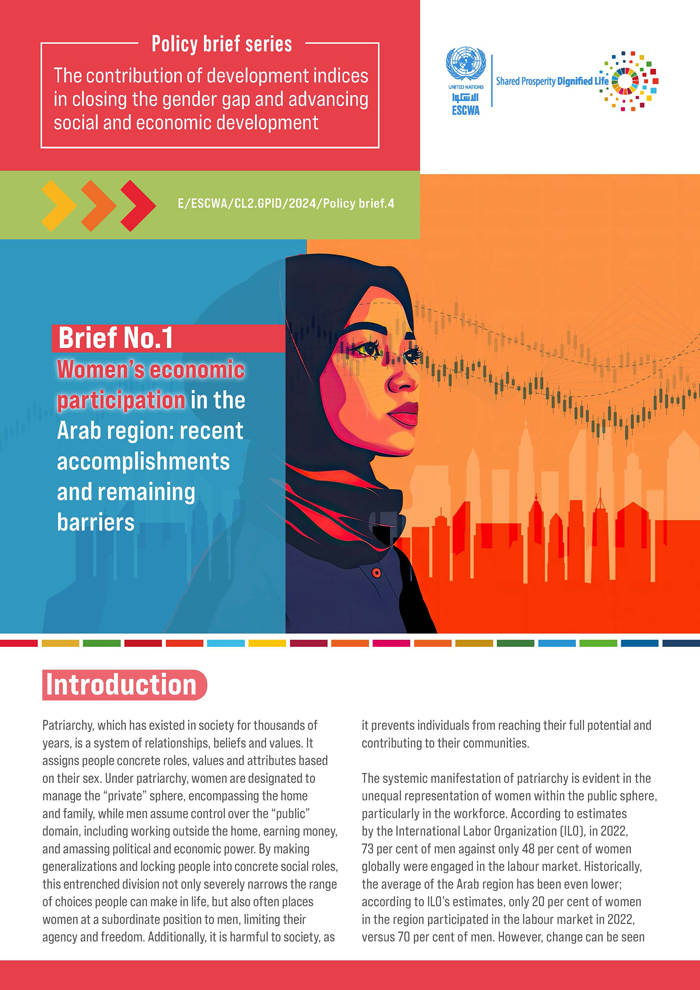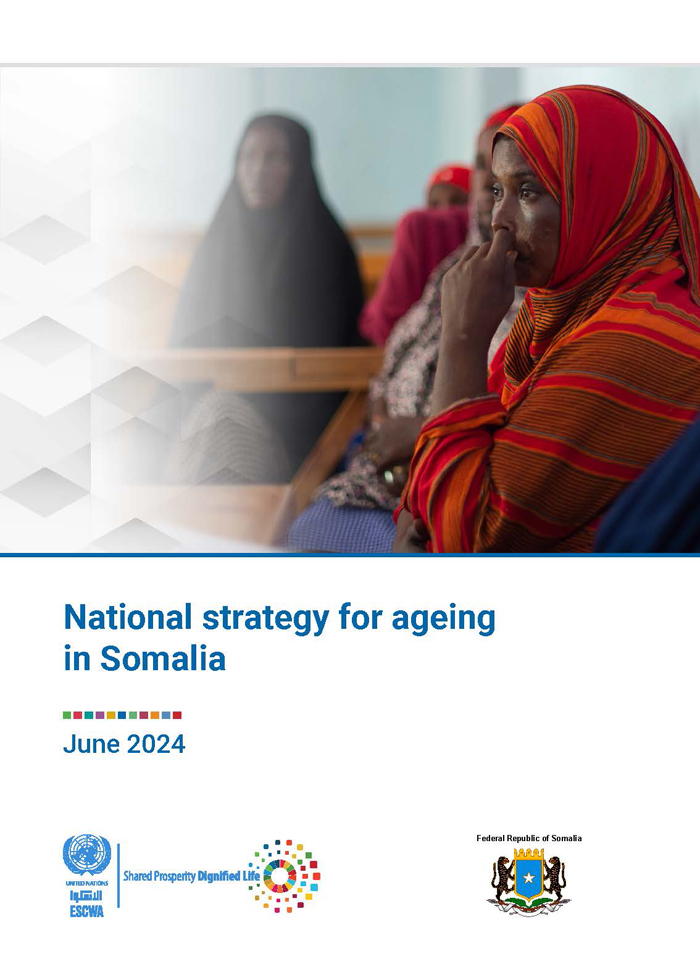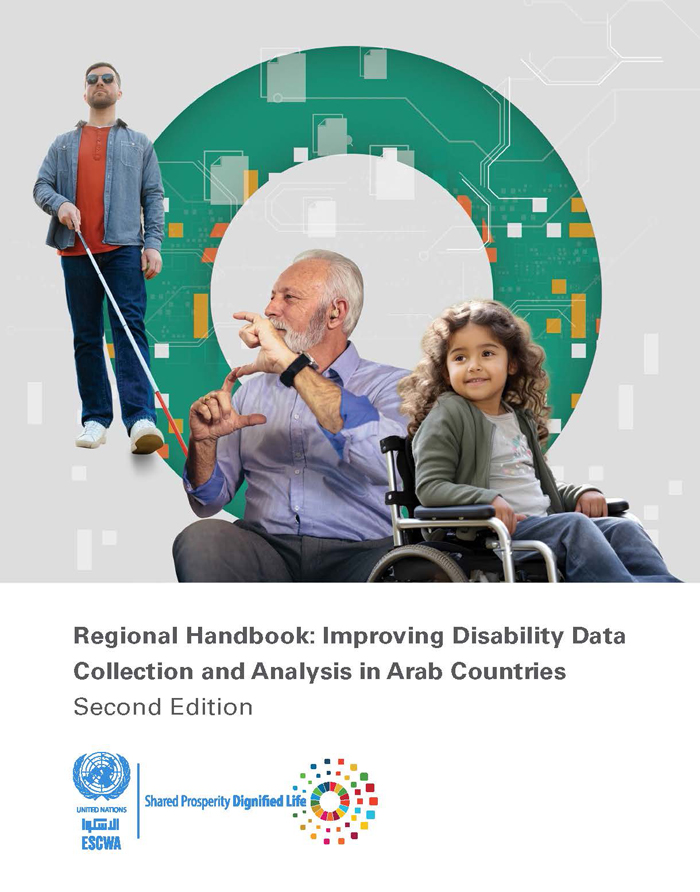
ESCWA Publication: E/ESCWA/CL2.GPID/2024/Policy brief.4
Country: Arab region, Kingdom of Bahrain, Arab Republic of Egypt, Hashemite Kingdom of Jordan, State of Kuwait, State of Qatar, Kingdom of Saudi Arabia, Republic of Sudan, Syrian Arab Republic, United Arab Emirates, Republic of Yemen
Publication Type: Policy briefs
Cluster: Gender Justice, Population and Inclusive Development
Focus Area: Gender equality, Inclusive development
Initiatives: Beijing Declaration and Platform for Action, Reducing inequalities, Women’s economic empowerment, Gender Justice and the Law, Women’s rights and gender mainstreaming, Arab Digital Inclusion Platform
SDGs: Goal 5: Gender Equality, Goal 10: Reduced Inequalities
Keywords: Arab countries, Bahrainis, Cultural aspects, Economic development, Egypt, Gender discrimination, Gender equality, Gender-based violence, Jordan, Kuwait, Legal aspects, Qatar, Syrian arab republic, Safety regulations, Saudi arabia, Social development, State of palestine, Sudan, United arab emirates, Women in development, Women workers, Women's employment, Yemen
Brief No.1: Women’s economic participation in the Arab region: recent accomplishments and remaining barriers
October 2024
This policy brief examines the negative impacts of restricting women’s societal roles to the home and domestic sphere, a practice which leads to noticeable gaps between the labour force participation rates of women and men. Legal, structural, and cultural barriers such as discriminatory laws, safety issues, and cultural norms such as caregiving expectations are identified as major obstacles that prevent women from joining the workforce. Success stories from countries in the region, such as the United Atab Emirates, Oman and Saudi Arabia, illustrate how legal and policy reforms can remove these barriers or help women to overcome them, and create an enabling environment for women that is reflected both in higher labour force participation rates and in improvements to a country’s ranking on major global development indices. The policy brief also shows readers how the ESCWA ISPAR (Index Simulator for Policymakers in the Arab Region) tool demonstrates that other countries can also experience significant improvements in their rank and position on these indices if they enact similar reforms.
Related content
Gender equality
, Inclusive development
,
This policy brief examines the negative impacts of restricting women’s societal roles to the home and domestic sphere, a practice which leads to noticeable gaps between the labour force participation rates of women and men. Legal, structural, and cultural barriers such as discriminatory laws, safety issues, and cultural norms such as caregiving expectations are identified as major obstacles that prevent women from joining the workforce. Success stories from countries in the region, such as the United Atab Emirates, Oman and Saudi Arabia, illustrate how legal and policy reforms can remove these barriers or help women to overcome them, and create an enabling environment for women that is reflected both in higher labour force participation rates and in improvements to a country’s ranking on major global development indices. The policy brief also shows readers how the ESCWA ISPAR (Index Simulator for Policymakers in the Arab Region) tool demonstrates that other countries can also experience significant improvements in their rank and position on these indices if they enact similar reforms.



